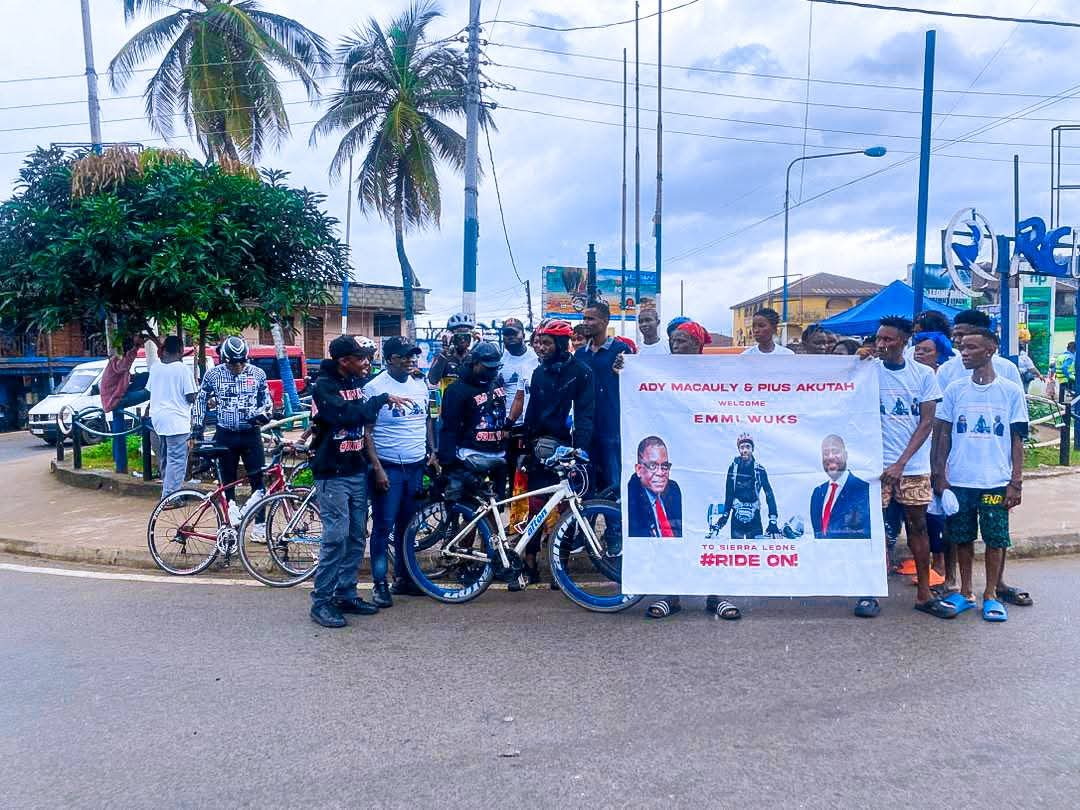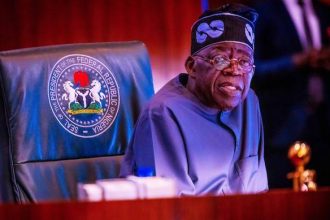The Story of Emmiwuks: Cycling for Africa’s Orphans
At a time when Africa is often associated with stories of conflict, displacement, and economic hardship, Emmiwuks has chosen an unconventional medium to shift the narrative, his bicycle.
His route begins in Nigeria, crossing through several West African nations including Ghana, Côte d’Ivoire, Liberia, and Sierra Leone, before heading northward through the Sahara into Morocco. From there, he intends to cross into Europe, pedal through to Canada, and ultimately descend into the United States.
For Emmiwuks, this is not a stunt for fame. Instead, it is an advocacy campaign on wheels. He seeks to raise awareness about the plight of Africa’s Internally Displaced Persons (IDPs), orphans, and impoverished communities who face neglect and abandonment. In many parts of Nigeria and neighboring countries, IDP camps have become semi-permanent settlements for families displaced by insurgency, natural disasters, or communal violence.
“I am telling Africa’s story, particularly the story of the orphans and the less privileged who have been made homeless. They deserve to be seen, heard, and supported,” Emmiwuks said before embarking on his journey.
His determination has inspired thousands who follow his progress online, symbolizing courage, endurance, and advocacy through action.
Dr. Pius Akutah’s Gesture in Sierra Leone
When news of Emmiwuks’ arrival in Sierra Leone broke, Dr. Pius Akutah seized the moment to mobilize a warm reception in Freetown. Videos and images shared online showed Sierra Leoneans and Nigerians waving flags and cheering him on as he pedaled into the capital city.
To some, Akutah’s mobilization is a humanitarian gesture, celebrating an individual making Africa proud. To others, it is a calculated political move and one that demonstrates Akutah’s ability to rally people, influence narratives, and project himself as a supportive leader who stands by the ambitions of his people.
This dual interpretation reflects the reality of Nigerian politics, where even genuine acts of goodwill are often scrutinized for their political undertones.

Politics at Play: Akutah vs. Alia
Dr. Pius Akutah recently declared his interest to contest for the governorship of Benue State, setting the stage for a potential high-stakes political battle. His main challenger will be the incumbent governor, Rev. Fr. Hyacinth Iormem Alia, who has already affirmed his determination to complete two terms in office, extending his tenure until 2031.
Alia, elected in 2023, enjoys a strong grassroots following, especially among those who see him as a reformist figure with a unique background as a Catholic priest turned politician. His infrastructural projects in Makurdi and across Benue have reinforced his popularity.
Akutah, however, brings a different profile. As Executive Secretary of the Nigerian Shippers’ Council and a member of the Nigerian Bar Association (NBA), he has extensive administrative experience and connections within national and international circles. His emergence in the political arena represents a growing sentiment among Benue elites who desire a technocrat with governance expertise.
The 2027 gubernatorial election is shaping up to be one of the most anticipated in Benue’s history, with Akutah and Alia standing as the two major contenders.
Benue State at a Crossroads
The significance of this rivalry goes beyond individual ambitions. Benue, often described as the “Food Basket of the Nation,” faces critical challenges ranging from insecurity caused by farmer-herder conflicts, to infrastructural deficits, youth unemployment, and the humanitarian crisis of IDP camps.
For many residents, the future leadership of Benue must address these pressing issues while balancing development with peacebuilding.
- Governor Alia’s Strengths: Infrastructure projects, populist appeal, and a loyal base among rural voters.
- Dr. Akutah’s Prospects: Administrative expertise, international exposure, and an image of technocratic competence.
The mobilization in Sierra Leone, while seemingly unrelated, positions Akutah as a leader willing to champion Benue indigenes wherever they may be a symbolic narrative that could resonate in future campaigns.
Humanitarian Symbolism of the Journey
Beyond politics, Emmiwuks’ journey has deeper symbolic value. His bicycle ride represents resilience, advocacy, and a reminder that African stories can be told through sacrifice and creativity.
In Sierra Leone, a nation with its own painful history of civil war and displacement, his arrival drew empathy. The images of him being welcomed by Sierra Leoneans underscored the power of solidarity across African borders.
For IDPs in Nigeria and across Africa, his effort shines a light on their forgotten struggles. While governments and NGOs continue to grapple with humanitarian crises, individuals like Emmiwuks remind the world that grassroots advocacy remains a powerful force.
Reactions from Benue and Beyond
In Makurdi and other towns across Benue, reactions to Akutah’s gesture have been mixed.
Supporters praise him for backing a Benue son on a global mission, calling it proof of his willingness to support the dreams of others. Critics argue it is political showmanship aimed at boosting his public image ahead of the 2027 elections.
On social media, hashtags like #SupportEmmiwuks and #BenueToTheWorld trended briefly, with commentators debating the humanitarian and political dimensions of the event.
At the national level, Emmiwuks’ story has inspired Nigerian youths, with some calling him “Africa’s Bicycle Ambassador.”
Broader Implications
The convergence of Emmiwuks’ humanitarian mission and Akutah’s political ambitions reveals three key dynamics:
- Politics and Symbolism: Political figures often align themselves with symbolic acts of resilience to reinforce their own narratives.
- Africa’s Untold Stories: Emmiwuks’ ride demonstrates how individuals can shift conversations about Africa from tragedy to courage.
- Benue’s Political Future: The rivalry between Akutah and Alia is not just about personalities but about the direction Benue will take in the next decade.
Meanwhile, Dr. Pius Akutah’s decision to mobilize support in Sierra Leone reflects the interconnectedness of humanitarian gestures and political strategy. Whether viewed as goodwill or political calculation, his actions have placed him firmly in the spotlight, not just in Benue politics but also in pan-African discourse.
As Benue approaches a critical political season, the people will watch closely to see whether Akutah’s gestures, combined with his administrative background, will be enough to challenge Governor Alia’s entrenched influence.
For now, one thing remains clear: Emmiwuks’ bicycle journey has transcended borders, inspiring unity, sparking political debate, and giving voice to Africa’s most vulnerable. His pedals continue to turn, and with each kilometer, he writes a new chapter in Africa’s story of resilience.












